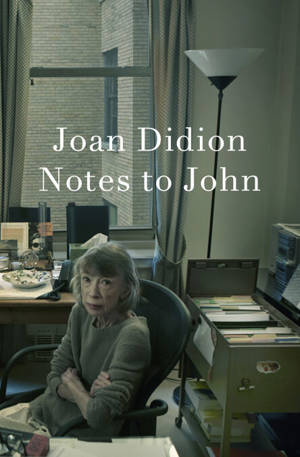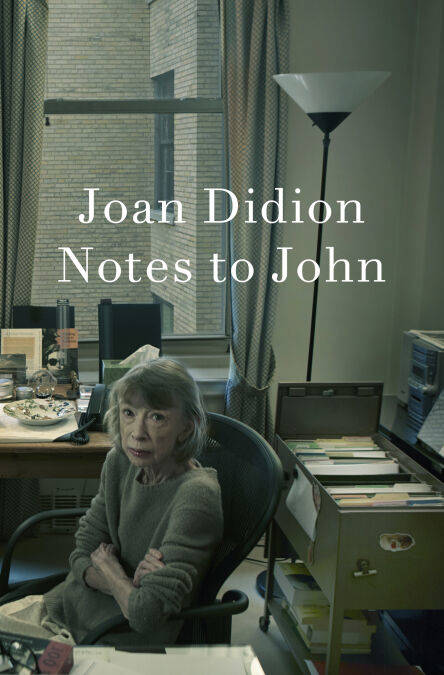
- Afhalen na 1 uur in een winkel met voorraad
- Gratis thuislevering in België vanaf € 30
- Ruim aanbod met 7 miljoen producten
- Afhalen na 1 uur in een winkel met voorraad
- Gratis thuislevering in België vanaf € 30
- Ruim aanbod met 7 miljoen producten
Zoeken
Omschrijving
A NEW YORK TIMES BESTSELLER
‘Utterly fascinating'
NEW YORK TIMES
'A profound, rich document’
NEW STATESMAN
'An act of intimate storytelling'
VOGUE
A recently discovered journal from one of America's most iconic writers, Joan Didion, the author of The Year of Magical Thinking and Blue Nights.
In November 1999, Joan Didion began seeing a psychiatrist because, as she wrote to a friend, her family had had 'a rough few years'. She described the sessions in a journal she created for her husband, John Gregory Dunne.
For several months, Didion recorded conversations with the psychiatrist in meticulous detail. The initial sessions focused on the heartbreaking complexities of her relationship with her daughter, Quintana: adoption, depression, alcoholism, anxiety, guilt. The subjects evolved to include her work, which she was finding difficult to maintain for sustained periods. There were discussions about her own childhood – misunderstandings and lack of communication with her mother and father, her early tendency to anticipate catastrophe – and the question of legacy, or, as she put it, 'what it’s been worth'. The analysis would continue for more than a decade.
Didion’s journal was crafted with the singular intelligence, precision, and elegance that characterize all of her writing. It is an unprecedently intimate account that reveals sides of her that were unknown, but the voice is unmistakably hers – questioning, courageous, and clear in the face of a wrenchingly painful journey.
'An incredibly intimate insight into her relationship with her daughter, depression, and creativity'
GUARDIAN
'So moving. I am astonished at the level of recall … They are a record of trying to save a life, and understand her own'
NEW YORK TIMES BOOK REVIEW
'Sheds intriguing light on the question of Quintana’s part in the family dynamic'
OBSERVER
'The literary source for the three great works of Didion's old age'
INDEPENDENT
'It’s always a pleasure to read Didion’s measured prose'
STANDARD
'Written with the immediacy of fresh recollection … and with the cool, forensic clarity she was known for'
NEW YORKER
'Compulsive … it shows Didion the reporter at work'
TELEGRAPH
'An intimate chronicle … Notes to John offers readers a key to Didion's persona and her work'
NPR
'Perhaps for the first time, we can hope to see Didion as she saw the world: unwavering and unflinching, straight down the line'
AnOTHER
'An unexpected parting gift to biographers and civilian readers'
AIRMAIL
'Fascinating … offers insight into her work'
iPAPER
'A tour de force from one of the best'
PEOPLE
'Notes to John' was a New York Times bestseller w/c 2025-04-28.
‘Utterly fascinating'
NEW YORK TIMES
'A profound, rich document’
NEW STATESMAN
'An act of intimate storytelling'
VOGUE
A recently discovered journal from one of America's most iconic writers, Joan Didion, the author of The Year of Magical Thinking and Blue Nights.
In November 1999, Joan Didion began seeing a psychiatrist because, as she wrote to a friend, her family had had 'a rough few years'. She described the sessions in a journal she created for her husband, John Gregory Dunne.
For several months, Didion recorded conversations with the psychiatrist in meticulous detail. The initial sessions focused on the heartbreaking complexities of her relationship with her daughter, Quintana: adoption, depression, alcoholism, anxiety, guilt. The subjects evolved to include her work, which she was finding difficult to maintain for sustained periods. There were discussions about her own childhood – misunderstandings and lack of communication with her mother and father, her early tendency to anticipate catastrophe – and the question of legacy, or, as she put it, 'what it’s been worth'. The analysis would continue for more than a decade.
Didion’s journal was crafted with the singular intelligence, precision, and elegance that characterize all of her writing. It is an unprecedently intimate account that reveals sides of her that were unknown, but the voice is unmistakably hers – questioning, courageous, and clear in the face of a wrenchingly painful journey.
'An incredibly intimate insight into her relationship with her daughter, depression, and creativity'
GUARDIAN
'So moving. I am astonished at the level of recall … They are a record of trying to save a life, and understand her own'
NEW YORK TIMES BOOK REVIEW
'Sheds intriguing light on the question of Quintana’s part in the family dynamic'
OBSERVER
'The literary source for the three great works of Didion's old age'
INDEPENDENT
'It’s always a pleasure to read Didion’s measured prose'
STANDARD
'Written with the immediacy of fresh recollection … and with the cool, forensic clarity she was known for'
NEW YORKER
'Compulsive … it shows Didion the reporter at work'
TELEGRAPH
'An intimate chronicle … Notes to John offers readers a key to Didion's persona and her work'
NPR
'Perhaps for the first time, we can hope to see Didion as she saw the world: unwavering and unflinching, straight down the line'
AnOTHER
'An unexpected parting gift to biographers and civilian readers'
AIRMAIL
'Fascinating … offers insight into her work'
iPAPER
'A tour de force from one of the best'
PEOPLE
'Notes to John' was a New York Times bestseller w/c 2025-04-28.
Specificaties
Betrokkenen
- Auteur(s):
- Uitgeverij:
Inhoud
- Aantal bladzijden:
- 224
- Taal:
- Engels
Eigenschappen
- Productcode (EAN):
- 9780008767266
- Verschijningsdatum:
- 21/04/2025
- Uitvoering:
- E-book
- Beveiligd met:
- Adobe DRM
- Formaat:
- ePub

Alleen bij Standaard Boekhandel
+ 21 punten op je klantenkaart van Standaard Boekhandel
Beoordelingen
We publiceren alleen reviews die voldoen aan de voorwaarden voor reviews. Bekijk onze voorwaarden voor reviews.







